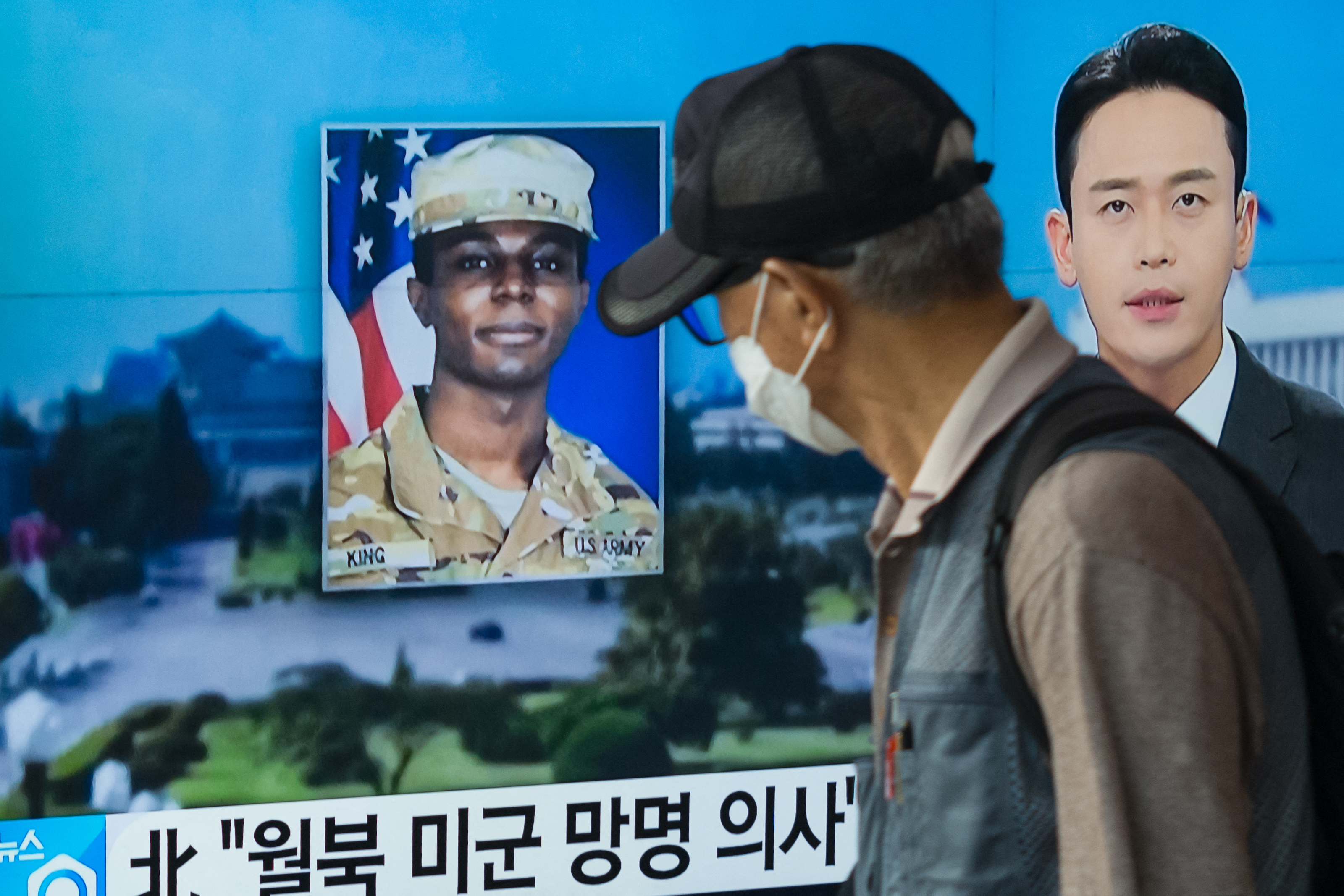
An American soldier released after more than two months in North Korea’s custody has returned to the United States, a US official confirmed.
Travis King arrived at a US military base in the state of Texas around 05:30 GMT on Thursday, the official told the Reuters news agency.
Video aired on Thursday by a Texas news station also appeared to show King, dressed in a dark top, walking off a plane in San Antonio.
King was released into US custody a day earlier, more than two months after he ran into North Korea across the Demilitarized Zone (DMZ) that separates the country from South Korea.
Pyongyang said on Wednesday that it “decided to expel” the 23-year-old US soldier after concluding an investigation over his unlawful entry in July.
A report in the official KCNA news agency said King, who is Black, “confessed that he illegally intruded into the territory of [North Korea] as he harboured ill feelings against inhuman maltreatment and racial discrimination within the US army and was disillusioned about the unequal US society”.
King bolted into North Korea while on a tour of the southern side of an inter-Korean truce village, Panmunjom.
The border between the two Koreas is heavily fortified but at the Joint Security Area (JSA), the frontier is marked only by a low concrete divider and is relatively easy to cross, despite the presence of soldiers on both sides.
King was serving nearly two months in a South Korean prison for assault.
He was released on July 10 and was to be sent home to Fort Bliss, Texas, where he could have faced additional military discipline and discharge from the service.
But he managed to leave the airport and eventually crossed into North Korea on July 18.
It remains unclear whether King will face any charges or disciplinary action upon his return to the United States.
How did King leave North Korea?
Washington has thanked Sweden and China for facilitating King’s release, with US National Security Advisor Jake Sullivan saying on Wednesday that Beijing had helped him transit out of North Korea.
The Swedish government, which represents US interests in North Korea because Washington has no diplomatic presence in the country, retrieved King in North Korea and brought him to China.
The State Department said the US ambassador to Beijing, Nicholas Burns, met King in Dandong, China, a city bordering North Korea. King flew from there to Shenyang, China, then to Osan Air Force Base in South Korea, before continuing his voyage back to the US.
Yang Moo-jin, a professor at the University of North Korean Studies in Seoul, told the Reuters news agency that Pyongyang appears to have concluded King’s criminal background made him “unfit” for propaganda purposes.
“North Korea could have decided to release King relatively quickly after seeing little advantage in keeping him,” said Yang.
The professor added that the North Korean authorities may have opted to use the case “as a chance to highlight themselves as a ‘normal state,’ showing that they are no longer using these detainees for political, diplomatic purposes”.
According to US officials, North Korea received nothing in exchange for the soldier’s release. “We made no concessions as part of securing his return,” US State Department spokesperson Matthew Miller told reporters on Wednesday.
That same day, Jonathan Franks, a spokesperson for King’s mother, Claudine Gates, said: “Ms Gates will be forever grateful to the United States Army and all its interagency partners for a job well done.”
After arriving in the US, King is expected to undergo a medical review at Brooke Army Medical Center, a hospital at Joint Base San Antonio-Fort Sam Houston.
US basketball star Brittney Griner was treated there in December after a prisoner swap with Russia ended her 10 months in Russian detention.
“The Army’s focus right now is on ensuring the soldier’s well-being and privacy. His status will be addressed at a later time by the chain of command,” spokesman Bryce Dubee told the AFP news agency on Thursday.
Previous cases of US detainees in North Korea
- Otto Warmbier was arrested for allegedly removing a political banner from a North Korean hotel and sentenced to 15 years of hard labour in 2016. He fell into a coma shortly after his sentencing and was released after nearly 18 months of detention. He died days later.
- US-Korean tour operator and missionary Kenneth Bae was arrested in November 2012 and was released two years later after a secret mission to Pyongyang led by then-US intelligence chief James Clapper.
- TV reporters Laura Ling and Euna Lee were detained by North Korean guards in March 2009 while on assignment on the China border. Three months later, they were sentenced to 12 years of hard labour until their release was secured when former US President Bill Clinton flew to the North Korean capital.
- Missionary Evan Hunziker swam naked and drunk across the Yalu River from China to North Korea in August 1996, when he was arrested and charged with spying. He was released three months later after US Congressman Bill Richardson travelled to Pyongyang.
- US soldier Charles Robert Jenkins also drunkenly crossed into the North in 1965 while patrolling the DMZ in an attempt to avoid facing combat duty in Vietnam. Jenkins was held for decades until he was eventually allowed to leave in 2004.







